I hate autocorrect

I must apologize to Art Alexakis, lead singer for Everclear. In a personal post last night observing his role as a tattoo artist in movie "Wild", his name is misspelled. Funny thing, so to get it right, I copied and pasted from the web into the WordPress editor. Yet somehow when published, and I missed, his name appeared as Alexis. My thanks goes to Scott Bell, who pointed out the error in a Google+ comment.
It's strange how tech meant to be beneficial gets in the way. More mistakes appear in my stories because of autocorrect than I make myself. The pattern is consistent: I will write, nix autocorrect's changed misspelling, but later edit something else in the sentence. Word changes! As a long-time writer and editor, I revise constantly until publishing—and afterwards, too. The spelling errors I miss most often typically are the ones made for me during spot edits.
Chrome finally becomes memory and power efficient -- you can try it out now

It's no secret that Chrome for Mac (OS X) is a mess. It eats a ridiculously high amount of memory, energy and shortens the battery life. Google announced earlier this year that it was working on a fix. And now it is delivering on that promise. The latest Chrome build -- available via Canary channel -- is significantly less resource hogging, and surprisingly faster at the same time.
The company has been hard at work improving the memory consumption in its Web browser while also making the tabs snappier. You can read about the development process and feedback at Chromium's developer website. The build dubbed 45.0.2454.46 is also significantly lighter on the battery and is no longer making the laptop crazy hot. In a recent build, the company was testing interesting internal processes like tab discarding in the background. The idea behind it is simple: make the tabs you haven't used in awhile idle automatically. This would, under the typical condition, free up a significant amount of memory.
Apple has two more vulnerabilities to fix in OS X 10.10 Yosemite

Two zero-day vulnerabilities in Apple’s OS X, that have been discovered by an Italian teenager, could potentially be used to gain remote access to a computer.
Luca Todesco, 18, found that there are two bugs in the OS that can be used to corrupt the memory in the OS X’s kernel. Once the memory is corrupt, the attacker can then circumvent the kernel address space layout randomization (kASLR), which is a defensive technique of the OS to protect itself from giving the attacker the root shell. But once the attacker circumvents through the kASLR, they can gain a root shell.
Dump Google Chrome to extend your MacBook's battery life

One of the main benefits to owning a MacBook is the superb battery life. Apple's laptops can work for a great deal of time on battery power alone, thanks in no small part to the numerous improvements made to OS X in recent years. Take my 2013 13-inch MacBook Air for example: it gets well over six hours of battery life on Yosemite, despite being nearly two years old at this stage. I rarely have to worry about plugging it in.
In fact, it could last even longer. The trick is not to use Chrome, which, despite Google's recent efforts to lower its power consumption, continues to be the most power-hungry major browser on OS X, more so than Apple's Safari and Mozilla's Firefox.
Apple will release OS X 10.10.5 to fix Thunderstrike 2 vulnerability

Apple has promised it will fix a major vulnerability which recently cropped up in its OS X Yosemite operating system.
The worrying zero-day vulnerability allows malware authors to modify a hidden configuration file to get root permissions on the victim machine, security firm Malwarebytes explained in a blog post, allowing for the installation of adware and other assorted malware nastiness.
Macs are vulnerable to Thunderstrike 2 firmware malware that survives formatting

Macs have long been touted as being immune to viruses and malware -- but there have been plenty of vulnerabilities that show this to be a fallacy. Apple's own claims that its hardware was not susceptible to the same firmware security flaws as PCs served only to encourage people to prove the company wrong.
At Black Hat USA on Thursday, researchers will demonstrate that not only can Macs be remotely infected with malware, but that this malware can survive a user formatting the system. In a talk at the InfoSec event in Las Vegas that focuses on all manner of security topics, Trammell Hudson, Xeno Kovah, and Corey Kallenberg will show that Macs are just as vulnerable to remote attacks as PCs using the Thunderstrike 2 backdoor.
Mac security software on test

Not so long ago most Mac users would have told you that their systems didn't need any form of protection as they were inherently safe. But the world has become a more dangerous place and last year the iWorm malware is thought to have recruited some 18,000 Macs into a botnet.
Whilst experienced users who are careful about what they install and where they go online may still be justified in feeling safe using a Mac without additional protection, there's no doubt that non-experts need extra security. Particularly as cyber criminals have started to target Macs because they know more of them are unprotected.
First look at iOS 9 and OS X 10.11 El Capitan public betas
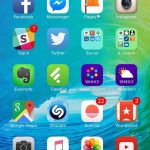
Apple has released the first public betas of iOS 9 and OS X 10.11 El Capitan, allowing anyone with a compatible device -- iPhone and/or Mac -- to become a tester. Having signed up for the beta program last month, I immediately wanted to experience what is new in the upcoming versions of the two operating systems.
There is huge demand for the first public betas, proof being that Apple's servers were quickly overloaded during the first hours of availability. You can thank the media frenzy for this. Nonetheless, I have managed to install the iOS 9 and OS X 10.11 El Capitan public betas on my iPhone 6 Plus and 13-inch MacBook Air, respectively. And here are my first impressions.
Could 13-inch MacBook Pro Retina Display with Force Touch trackpad be right for you? [Review]

Reviewing most any MacBook Pro is a pointless exercise, because this year's model isn't much different from the previous—or the one before. That's why I typically buy refurbished rather than new. But I broke with that practice last month, after a sudden electrical calamity laid my wife's laptop to rest. Fried and died it is. With Apple releasing new versions of iOS and OS X and launching a streaming music service, a summer sojourn seemed opportune.
I considered going Windows 10, which arrives later this month. But most of my BetaNews colleagues are headed that way, so I set out down the Apple reviews track. Again, I probably wouldn't have done so if not for my wife's computer catastrophe. I lent her my Chromebook Pixel LS and purchased a new MBP. She will never give up the Google laptop, BTW.
Apple releases iOS 8.4, OS X 10.10.4 Yosemite -- here's what's new
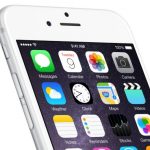
Just as expected, Apple today released iOS 8.4, officially launching its Apple Music streaming service and the Beats 1 radio station. Also new for today is an update for OS X 10.10 Yosemite, which comes with a significant number of bug fixes and improvements in tow.
Apple Music and Beats 1 are introduced through the redesigned Music app. Upon launch, it promotes the company's new streaming service, inviting users to a free, three-month trial. There is a new icon as well as a new user interface -- if you want to keep listening to your existing music collection, you can do so as easily as before. The new Music app is not all that is new in iOS 8.4, as the new release also features a number of bug fixes and improvements targeting iBooks and other parts of the operating system.
More than just a USB hub -- Inateck HB4009 [Review]
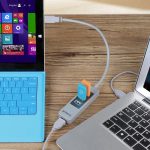
USB hubs are commonplace and, let's be honest, not especially exciting pieces of kit. Inateck’s HB4009 is a three-port USB 3.0 hub, but it also has an extra trick up its sleeve. It has a Magic Port, allowing you to link two systems together for file transfers or establish a client/host link using the USB On-The-Go (OTG) standard.
This makes it a versatile little device as you can link Windows, Mac OS and Android devices to their own kind or to each other. You can also attach another USB device like a flash drive or camera to a system, such as a tablet, that might not otherwise have a suitable port.
Will editorial bias blight a curated Apple News?

There was a lot of Apple news to digest from WWDC last week. As well as the latest versions of OS X and iOS, we witnessed the appearance of women on stage as Apple tried to do its part for diversity. Apple would probably like us to focus on the likes of the Apple Music and Beats One launches, but really it's another announcement that should be foremost in our minds: Apple News.
On the face of it, this is a simple replacement -- perhaps even just a renaming -- for Newsstand, but it's really much more than that. The key difference here is that content will not only come from media partners, but will also be curated. Apple is now a news editor, and that's extremely dangerous.
Microsoft can only blame itself
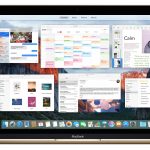
Apple has a long history of competitive marketing one-upmanship. Major tactic is the artful leak timed around someone else's major product announcement or event. How many times has the company stolen CES participants' thunder without ever attending the event, for example? Occasionally, the showstopper is accidental, as is the case with OS X El Capitan.
I wonder: What were the Microsoft development and marketing teams thinking when they chose July 29th as Windows 10's release date? It's like stepping off the curb in front of a fast-moving, energy-efficient, gas-powered bus. Apple almost certainly will release the OS X 10.11 Public Preview before Windows 10 drops. The company promises July and has every reason to rub Microsoft's nose in the stink.
Apple previews OS X 10.11 El Capitan -- yes, that's its real name
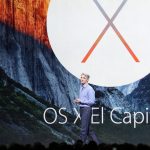
While Microsoft has been busy cramming lots of new features into Windows 10, Apple is taking a different, iterative approach with OS X 10.11, called El Capitan. Yes, like the headline says, that is the actual name. The focus is on refinement, with the biggest changes to the latest Mac operating system being a more polished and beefed-up user interface, improvements to the built-in software and better performance.
Visually, OS X 10.11 El Capitan introduces new gestures, like swipe to delete emails in Mail, an improved Safari user interface, which now gives users the option to pin tabs by swiping and the ability to quickly mute audio in individual tabs. The most-obvious and interesting change in this area, however, is related to multitasking.
Sony Music CEO: Apple WILL launch music streaming service at WWDC
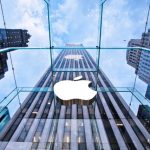
It has been rumored for as long as we can remember (well... almost...). The idea that Apple would launch a streaming music services -- bearing in mind everything else Apple does -- is something that just makes sense. Now the cat is out of the bag as the rumor is confirmed by Doug Morris, CEO of Sony Music.
The official announcement will come from Apple at its World Wide Developers Conference tomorrow (Monday 8 June), but Morris' statement in an interview in the Midem Music Industry Festival in Cannes is a solid source. He said that the launch will represent a "tipping point" for the industry as music listeners make the move from downloading tracks to streaming them on demand. Just don't expect Apple service to be free.
Recent Headlines
Most Commented Stories
© 1998-2025 BetaNews, Inc. All Rights Reserved. About Us - Privacy Policy - Cookie Policy - Sitemap.